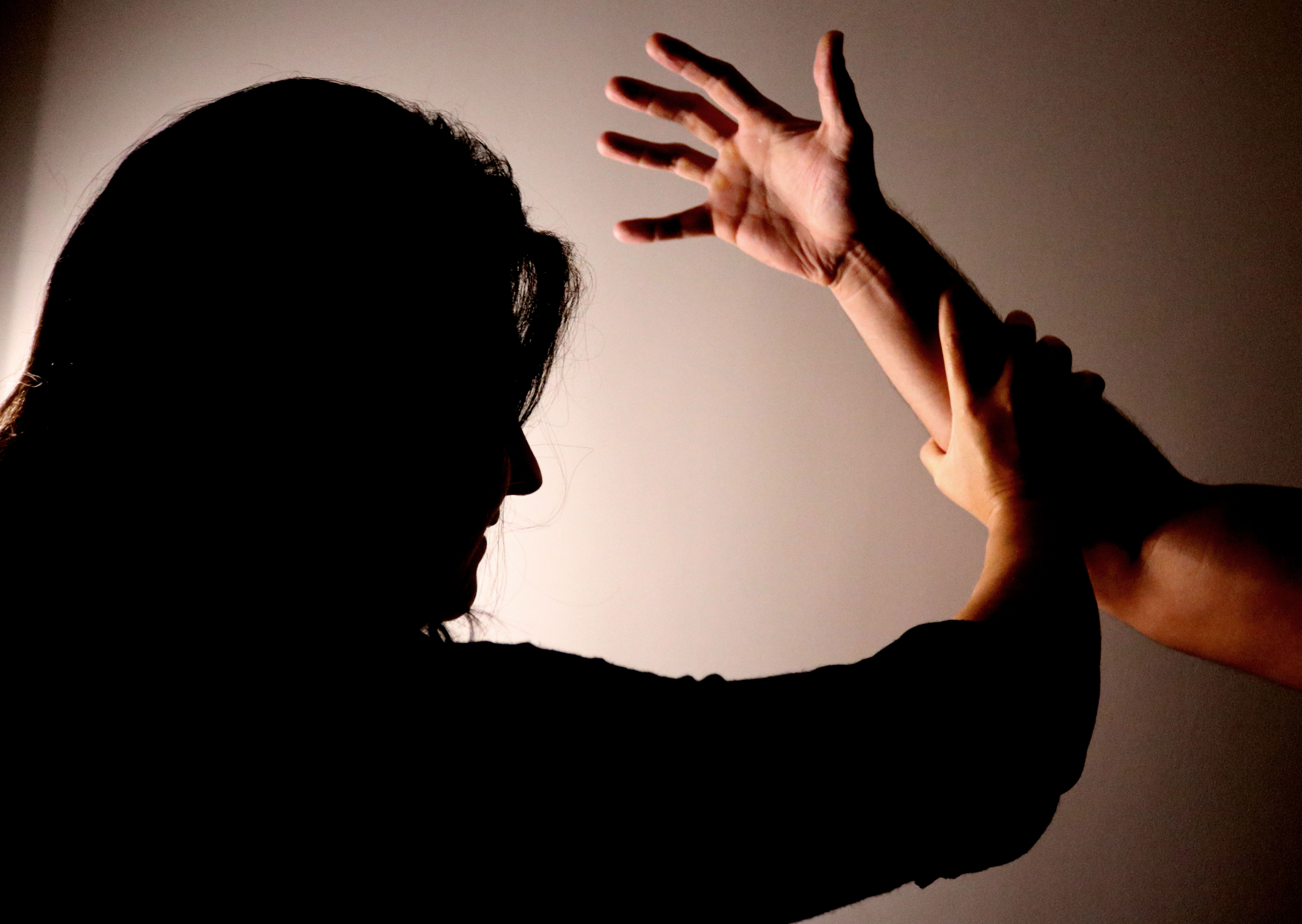Trying to hide from themselves, faced with the physical and psychological marks left by the violence they suffered, women victims of sexual abuse ask for help. Since the pandemic changed society's routine, imposing social isolation as the most effective way to prevent the accelerated spread of the coronavirus, cases of physical rape of girls and young women have increased around the world. In the most recent report made by the Attention Service for People in Situations of Sexual Violence at the Santos Dumont Institute (ISD), in Macaíba, notifications for this type of crime increased by 160% from 2016 to the first half of this year. The number, however, could be even higher. From January to July this year, according to data from the State Secretariat for Public Security and Social Defense (Sesed/RN), 233 women were raped throughout the state of Rio Grande do Norte.
“Notifications have increased. There was a lot of underreporting. They fluctuate, but always above the number at the start of the reception service for victims of sexual violence at Anita. In the Municipality of Macaíba it also increased. We started networking and encouraged notification in the Emergency Care Units, in the Basic Health Units that did not report these cases”, says the multidisciplinary preceptor in Social Assistance at ISD, Alexandra Lima. One of the Institute's units, the Anita Garibaldi Health Education and Research Center (Anita), is a reference in Macaíba and districts for receiving sexually abused children and women.
In Rio Grande do Norte, according to data analyzed by ISD requested from the State Secretariat for Public Security and Social Defense (Sesed/RN), the number of female people who suffered threats jumped 73% – from 2,183 to 3,777 – from January to July this year compared to the same period in 2020. The total number of bodily injuries among women increased by 1,47% (from 1,697 to 1,722). Femicides fell by 18% (from 11 to 9). Intentional homicides against women fell by 13,89% (from 36 to 31). Cases of rape of vulnerable people increased by 5,59% – 143 women were sexually assaulted compared to 151 in the same period this year.
According to ISD data, throughout 2016 – when the service started at Anita – five cases were reported. In the first half of this year, the number was already 13 notifications. The majority of victims are under 10 years of age, female and were raped by close relatives (parents, brothers, cousins, stepfathers and family friends). In addition to sexual violence, these victims also suffer other abuses. “It draws attention to the number of people who suffer psychological violence and, therefore, do not report it. There was an increase, in all age groups, in cases of sexual violence. They happen in a high context and result in anxiety, depression…”, highlights Alexandra Lima.
The joint work carried out by professionals from the Santos Dumont Institute in partnership with Macaíba City Hall increased the number of records of sexual rape cases in the municipality. Continuous and technical guidance from health professionals, public security and the social assistance network was fundamental. Furthermore, the work of the Epidemiological Surveillance that guides and coordinates the services to make notifications has allowed greater effectiveness in the reception and treatment policies for victims of this type of crime, with the consequent forwarding of cases to the Civil and Military Police.
Data from the Brazilian Public Security Yearbook, released in July this year, shows that throughout 2020, the first year of the pandemic, “230,160 women reported a case of domestic violence in 26 UFs, with Ceará being the only state that did not report it. This means that at least 630 women sought out a police authority every day to report an episode of domestic violence.”
Signals
Victims of sexual violence, especially children, even if they do not express the taboos verbally to their parents or guardians, send out signals that something is wrong. Care must be taken to ensure that the crime is not repeated and that the victim is welcomed and treated as quickly as possible. Furthermore, the case must be reported to the Police, the Guardianship Council or the State Public Prosecutor's Office for constitutional measures to be taken against the criminal.
“The first signs are behavioral changes. The return to bed-wetting, the aversion to being in the presence of a certain person, not wanting to go somewhere where a certain person, a certain adult will be present. Even if the child does not say in words that the person committed abuse, he expresses it with signs of resistance to physical contact, changes in eating and sleeping. These are behavioral changes, and anyone who lives with the child will notice that there is a difference. Children will resist going to their grandparents' and uncles' houses, for example. The alleged attackers are all known people. If they are not family, they are close to the family and children”, declares Alexandra Lima.
Reception
The Anita Garibaldi Health Education and Research Center (Anita) is a reference unit in the Municipality of Macaíba for the reception, notification and treatment of victims of sexual violence. It operates with open doors, receiving spontaneous demands or patients referred by the network (UPA, UBS, CREAS). Find out below the reception flow developed at Anita for people who are victims of sexual violations.
Initial care with a team made up of a psychologist, social worker and nurse;
Identification of demands. The team assesses the victim and identifies whether there is a need for medical, pediatric or gynecological evaluation, whether chemoprophylaxis should be used, whether the situation is acute and occurred in less than 72 hours;
In some cases, rapid tests are carried out to identify contamination by HIV, syphilis and hepatitis;
Depending on the situation, medication is administered to prevent contamination by Sexually Transmitted Infections (STIs);
Creation of a scheme for health monitoring with a Psychology professional, social guidance, communication to the Guardianship Council and Specialized Reference Center for Social Assistance (CREAS), if the victim seeks Anita directly;
Carrying out new rapid tests in 30 days and 90 days;
Dispensing of medication for chemoprophylaxis over 28 days and return for evaluation by an infectious disease doctor and pharmacist;
Psychological support;
The confidentiality of the entire process is guaranteed.
Types of violence
What are the types of domestic and family violence against women?
The Maria da Penha Law (Law No. 11,340, of August 7, 2006) defines five forms of domestic and family violence. Are they:
Physical violence: actions that offend the integrity or health of the body, such as: hitting or beating, pushing, throwing objects towards the woman, shaking, kicking, squeezing, burning, cutting or injuring;
Psychological violence: actions that cause emotional harm and lower self-esteem, or that aim to degrade or control your behaviors, beliefs and decisions; through threat, embarrassment, humiliation, manipulation, isolation, constant surveillance, persistent persecution, insult, blackmail, violation of privacy, ridicule, exploitation and limitation of the right to come and go, or any other means that causes harm to psychological health and self-determination;
Sexual violence: actions that force a woman to perform, maintain or witness a sexual act without her wanting to, through force, threat or physical or moral constraint;
Property violence: actions that involve the withdrawal of money earned by the woman through her own work, as well as destroying any property, personal property or professional instrument;
Moral violence: actions that dishonor women in society with lies or insults. It is also to publicly accuse her of having committed a crime. Examples are: swearing in front of friends, accusing her of something she didn't do and saying things that aren't true about her to others.
Service
How to report cases of sexual exploitation or domestic violence:
Women’s Service Center – Call 180
Ligue 180 is an essential public service to combat violence against women. In addition to receiving reports of violations against women, the center forwards the content of the reports to the competent bodies and monitors the progress of the processes.
The service is also responsible for guiding women in situations of violence, directing them to specialized services within the care network. On Ligue 180, it is still possible to find out about women's rights, current legislation on the subject and the care and reception network for women in vulnerable situations
Dial Human Rights – Dial 100
Responds to reports of violations involving children and adolescents, elderly people, people with disabilities, people with restricted freedom, LGBT people and homeless people. The service is also available to report cases involving ethnic or racial discrimination and violence against gypsies, quilombolas, indigenous people and other traditional communities.
190 – Rio Grande do Norte Integrated Public Security Operations Center
127 – Public Ministry of the State of Rio Grande do Norte
Text: Ricardo Araújo / Ascom – ISD
Photograph: Mariana Ceci / Ascom – ISD
Communication Office
comunicacao@isd.org.br
(84) 99416-1880
Santos Dumont Institute (ISD)
It is a Social Organization linked to the Ministry of Education (MEC) and includes the Edmond and Lily Safra International Institute of Neurosciences and the Anita Garibaldi Health Education and Research Center, both in Macaíba. ISD's mission is to promote education for life, forming citizens through integrated teaching, research and extension actions, in addition to contributing to a fairer and more humane transformation of Brazilian social reality.













